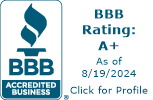As the volatile economy continues to result in more layoffs and contracting budgets, many people are looking for ways to save money and maximize their resources. In some cases our client’s health insurance needs fit well with an HSA qualified High-Deductible Health Plan (HDHP) policy along with an HSA savings account.
HSA qualified policies are not the best fit for everyone, but they can be a great option in many cases. While each person’s or family’s needs differ, HSA qualified plans can be a good health insurance solution for people that are relatively healthy and are want to focus more on catastrophic coverage rather than on plans that include copay coverage for doctor visits and function as “maintenance” plans as well. Good candidates for consideration include people who may only go to the doctor for preventative or “well visits” and who understand how HSA qualified policies function and are willing to capitalize on the ability to open a tax-free HSA savings account and use it in conjunction with their HSA qualified plan.
In Colorado, HDHPs may not be the best option for everyone since rates vary based on zip code, age, health history and a number of other factors. In some cases, the cost difference between HDHPs and copay plans may be very little and some people prefer to have the option of going to the doctor for a set fee ranging from $15 to $40, depending on the plan. HDHPs may not also be the best option for families with young children, since you never know what illnesses or injuries may occur, and the copay feature is very convenient for many families.
After looking at the options, if it is determined that an HSA qualified plan is the best solution, there are many banking options to consider. Health Savings Accounts can be opened at many banks and some credit unions in Colorado. In my experience, many more banks than credit unions offer this option.
Finding a bank or other financial institution in which to deposit your money should be researched to best fit your needs. Considerations may include convenience, as well as whether you intend to use the money in your HSA account for cash-flow versus investment purposes. For convenience, you may want to open an account where you currently bank so you can transfer money between accounts, as necessary. The cash flow consideration refers to the use of the HSA account as a pay-as-you go fund to pay medical bills and still take advantage of the tax benefits. This is accomplished by depositing just enough money to pay for your current or short term medical billing needs. If this is your goal, a financial institution that pays a nominal interest rate and charges low account fees may be the best solution. On the other hand, if one of your goals is to maximize the tax credit feature of your HSA account and invest the money for longer terms; you might want to research institutions that offer the ability to invest in money market funds, bond funds or mutual funds once you reach a balance threshold. Several banks will allow you to invest your money in these funds once you reach a balance of $2,000 or more.
In any case, it can literally pay to research the HSA account options available to you to find the best option for interest or convenience that suits your needs. Once your HDHP policy is in place and you have opened an HSA account, it should be easy to use your money since most accounts allow you to use a debit card or checks to pay for medical expenses. A summary of some of the medical expenses that are allowable under IRS rules is available under IRS Publication 969.





